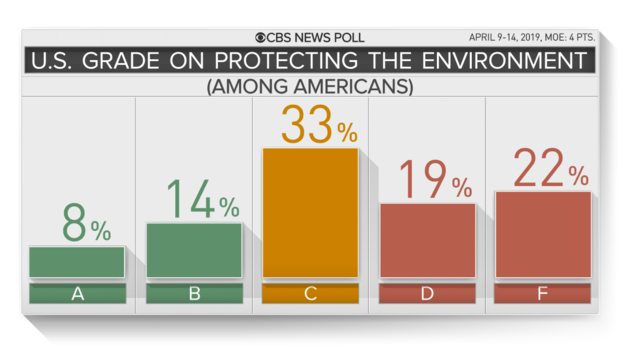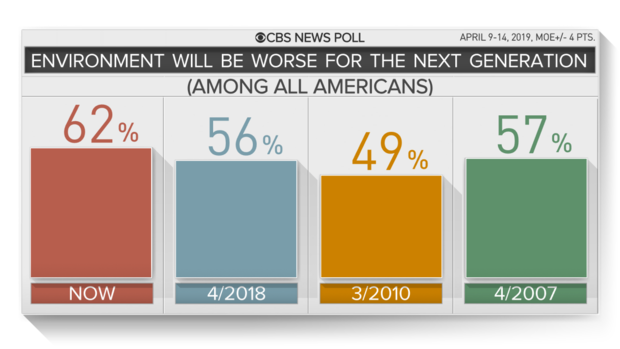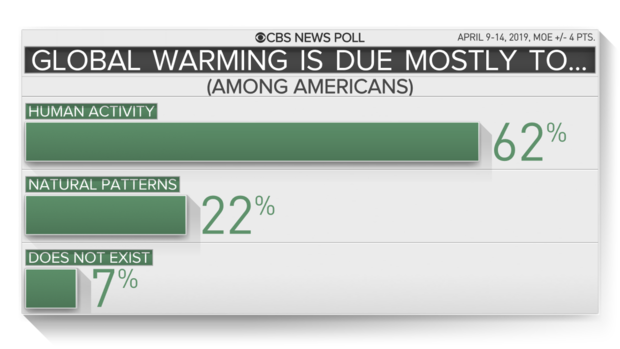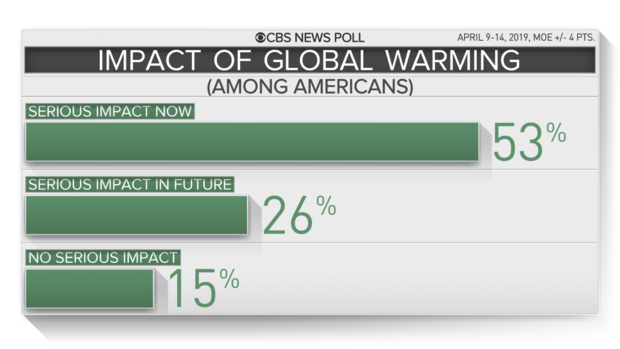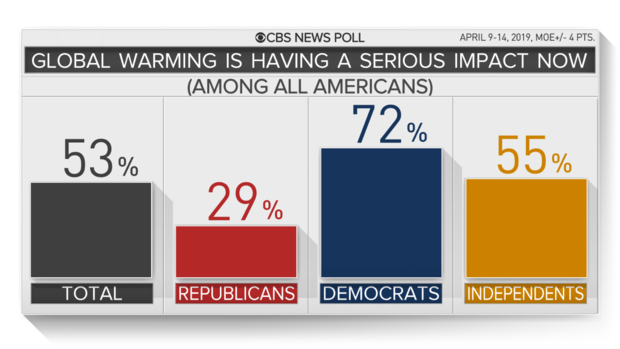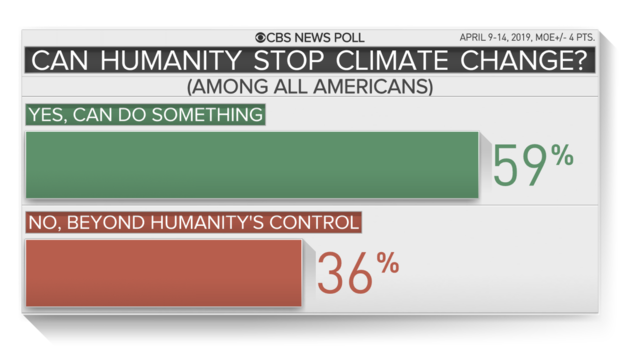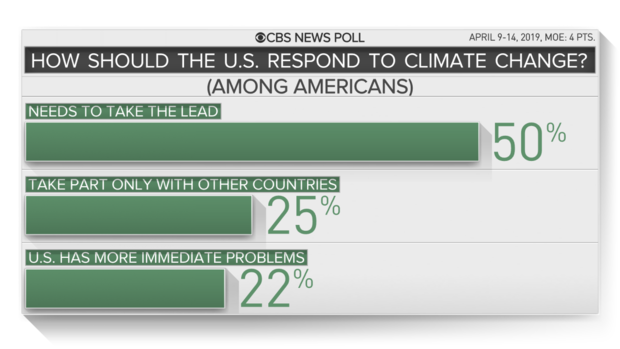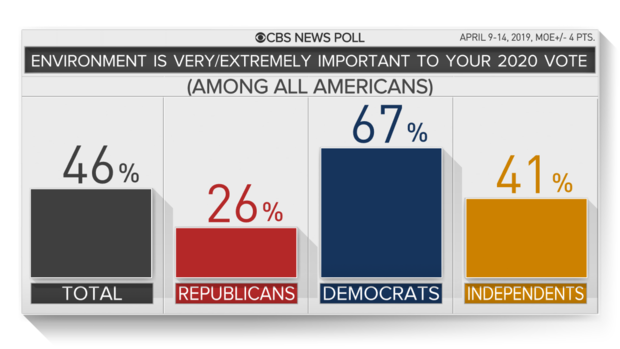Growing number of Americans think environment will be worse for next generation, CBS News poll finds
Americans give the U.S. just average or low marks on the progress it has made on protecting the environment and most believe the environment will be worse for the next generation of Americans.
A majority thinks global warming is caused mainly by human activity, and more than half of Americans think it's having a serious impact now. Still, about 6 in 10 think humanity can do something to stop or slow climate change.
When asked to grade the U.S. on protecting the environment, few Americans give the U.S. high marks. Most give the country a "C" at best, including 22 percent who give a failing grade of "F." Back in 2009, just 6 percent said the U.S. deserved an "F" for the progress it had made in protecting the environment.
Americans are more pessimistic about the future condition of the environment than they were a year ago. Now 62 percent think the environment will be worse for the next generation of Americans, up six points from a year ago.
Sixty-two percent of Americans think that global warming is caused by human activity — up just one point from last fall but now the highest percentage in CBS News polling. Back in 2011, just 42 percent thought that global warming was a man-made phenomenon.
And more than half of Americans (53 percent) think global warming is causing a serious impact now.
Differences by political party remain on this issue. Most Democrats and independents believe global warming is caused mostly by human activity and think it's having a serious impact now. Republicans, however, are more skeptical that humans are the main cause (45 percent think so) and roughly just three in 10 Republicans think global warming is having an impact now.
Most Americans (59 percent) think humanity can do something to either stop or slow down climate change if everyone really tried, while 36 percent think climate change is beyond humanity's control. Most who think global warming is caused by humans believe humanity can do something (72 percent), but among those who think natural patterns are the chief cause, most say stopping or slowing climate change is beyond humanity's control (62 percent).
For some Americans — 49 percent — the environment is so important to them that they do things in their own lives to help it even if it costs time or money. Another 38 percent think it is important, but that they don't have the time or money to help right now. Eleven percent think it's not that important right now. Republicans and Americans with lower incomes tend to be less likely to say they make personal sacrifices to help the environment.
There is some division on the role the U.S. should take regarding climate change. Fifty percent think the U.S. needs to take the lead in trying to prevent it, while 25 percent say the U.S. should take part in efforts to do that only if other countries do their share, and another 22 percent think the U.S. has more immediate problems right now.
Most Democrats (66 percent) think the U.S. should take the lead on climate change, while most Republicans either think the U.S. should only act with other countries (33 percent) or that it has more important priorities (35 percent).
When looking to the 2020 presidential election, most Democrats say the environment will be an extremely or very important issue in their vote. It is far less of a voting priority for Republicans.
This poll was conducted by telephone April 9 to 14, 2019, among a random sample of 1,010 adults nationwide. Data collection was conducted on behalf of CBS News by SSRS of Glen Mills, Pennsylvania. Phone numbers were dialed from samples of both standard landline and cellphones.
The poll employed a random digit dial methodology. For the landline sample, a respondent was randomly selected from all adults in the household. For the cell sample, interviews were conducted with the person who answered the phone.
Interviews were conducted in English and Spanish using live interviewers. The data have been weighted to reflect U.S. Census figures on demographic variables.
The error due to sampling for results based on the entire sample could be plus or minus four percentage points. The error for subgroups may be higher and is available by request. The margin of error includes the effects of standard weighting procedures which enlarge sampling error slightly. This poll release conforms to the Standards of Disclosure of the National Council on Public Polls.
